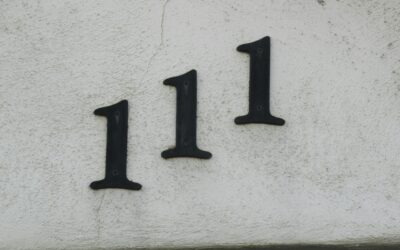Immediately after the frenzy of valentines, most retailers will stock up on pastel-colored baskets, jelly beans, plastic eggs, and all kinds of bunny-shaped treats. This is usually a sure sign that easter is just around the corner. Easter is a time to commemorate the passion, death, and resurrection of Jesus Christ so it can be a bit confusing what the East Bunny has to do with it.
So what is the connection of the easter bunny to Jesus?
Contrary to common belief, the easter bunny is not a Christian symbol. Even though the rabbit is mentioned in the Bible, there is no connection between the bunny and the story of Easter. Jesus did not have anything to do with rabbits and these animals are only mentioned in the Old Testament.
Rabbits are mentioned only twice in the Bible – In Deuteronomy 14:7 and Leviticus 11:6. In both of these scriptures, the word rabbit refers to the actual animal and it is not a symbol of something else. We know this because these scriptures outlined the laws around the clean and unclean animals and rabbits/hares were mentioned as unclean animals that were not to be consumed by Israelites.
The origin of the easter bunny
An article by The Times posits that the Easter Bunny originated from a pagan ritual related to the vernal equinox (the first day of spring). The ritual was attributed to the goddess of fertility (Eostre) who was symbolized by hare and eggs. It is not clear how the pagan practice became adapted by Christians but some believe the missionaries who spread the gospel in Europe incorporated the practice in easter celebrations to make the gospel more palatable for the new converts.
Early Christian literature points the origin of the Easter Bunny to Germany. That’s because German literature from the 1600s mentioned the “easter hare,” which was known as “Oschter Haws” in German. According to these writings, the easter hare would leave colorful eggs for the children that had been good. Children would then participate by preparing baskets for the bunny to place eggs in and they would even leave carrots for the bunny. The children would then participate in egg-hunting later on. The references to the easter bunny in early German literature suggest that German immigrants must have brought the practice to America.
Why the easter bunny and not a hen?
It is a bit confusing to imagine that a bunny gives eggs. We all know that bunnies are mammals and as such, do to lay eggs. So how come the bunny was used in the ritual and not a hen or any other domesticated bird like the duck or turkey? Well, the answer is the bunny was believed to be the most prolific animal. The rabbit is known to have a short pregnancy of only one month and they can give birth to up to ten babies. Incredibly, the rabbit can get pregnant hours after giving birth. The evolution of the rabbit to reproduce quickly explains why it became a symbol of the pagan goddess of fertility. Because it was impractical to use rabbit babies in the ritual, eggs became a good substitute. The egg was used as a symbol of regeneration and rebirth which is what the vernal equinox rituals were all about.
So where did the eggs come from? Well, the bunny was just a symbol as there was no actual bunny. After the kids had strategically set their decorated baskets, the parents would then place the eggs in the baskets for the kids to “find.” Today, however, children participate in the practice of decorating the eggs which they then place in the baskets. Alternatively, the pre-decorated eggs can be bought from a store – including artificial ones.
The connection of bunny to easter
The timing of the pagan ritual of the goddess of fertility coincided with the season of Easter. Easter is unlike Christmas or other Christian holidays because it doesn’t have a fixed date. The council of Nicaea (in 325 AD) established that easter should be celebrated on the first Sunday after the full moon that comes after the spring equinox. As a consequence, Easter is usually celebrated on a Sunday between March 22 and April 25. Since the pagan ritual attributed to Eostre (the goddess of fertility) was celebrated on the first day of spring, the two celebrations shared the same season.
Because of the bunny celebration during spring was largely accepted in society, it made sense to the early church leaders to incorporate it into easter celebrations. This decision was made easier by the fact that the symbols of the bunny and the eggs represent rebirth and regeneration which were also the central themes of easter. Some may even argue that the incorporation of the easter bunny in easter celebrations helped steer people away from worshipping Eostre and other idols and focused the message of the blessing of spring on the God of the Bible.
Is easter bunny a pagan practice?
Strictly speaking, the easter bunny is not a Christian practice. This is because it was adapted from a pagan ritual. Furthermore, there is no scriptural evidence that the rabbit is a symbol of the death and resurrection of Jesus Christ. That said, there is no denying that the two celebrations have some interesting parallels which made their amalgamation almost natural. For instance, both celebrations happen in spring and both have the theme of regeneration, rebirth, and renewal.
Conclusion
To wrap it up, the easter bunny doesn’t really have a connection to Jesus. It was a pagan practice that originated in Germany and was celebrated during spring and was attributed to the goddess of fertility. The bunny was used as a symbol of fertility because of its ability to reproduce very quickly. It is believed the missionaries who took the gospel to Europe decided to adopt the practice in easter festivities as a way of encouraging the locals to adopt Christianity and abandon their pagan lifestyle.





